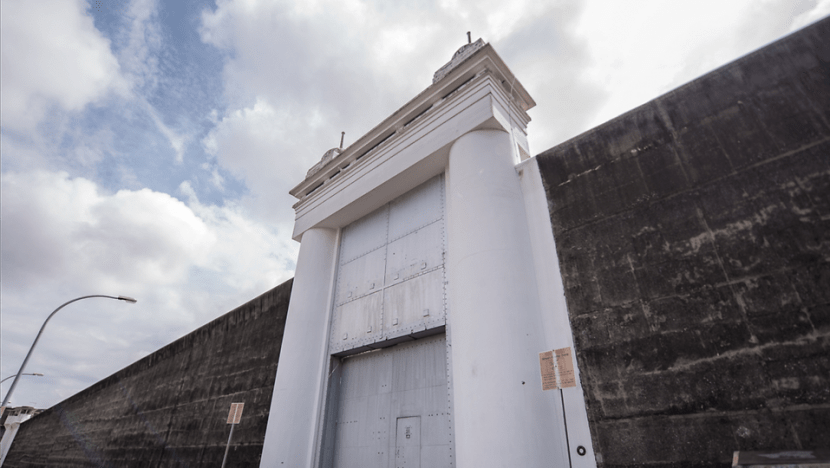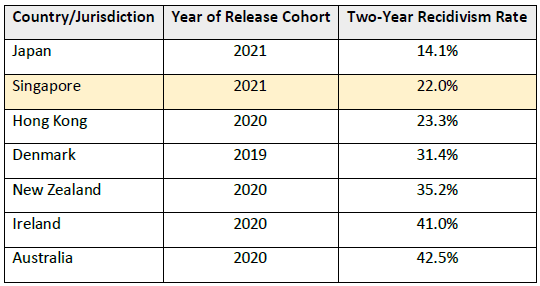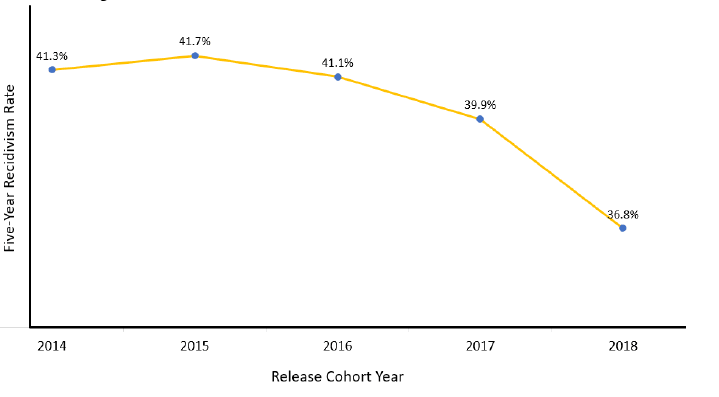Drug reoffending rate rises for second straight year: Singapore Prison Service

The entrance gate of Changi Prison. (File photo: Singapore Prison Service)

This audio is generated by an AI tool.
SINGAPORE: The drug reoffending rate has gone up for the second straight year, but the overall recidivism rate remains “among the lowest internationally”, said the Singapore Prison Service (SPS) on Wednesday (Feb 14).
According to the latest annual statistics released on Wednesday, the two-year recidivism rate for the Drug Rehabilitation Centre’s (DRC) 2021 release cohort was 27.7, up from 26.1 per cent the year before and 24.5 per cent for the 2019 cohort.
A two-year recidivism rate refers to the percentage of local offenders who were jailed, detained or got a day reporting order within two years of their release into the community.
The overall two-year recidivism rate came in at 22 per cent for the 2021 release cohort, up slightly from 20.4 per cent the preceding year, data showed.
This increase was largely due to the increase in the recidivism rate of repeat drug offenders, said SPS.
The prison service said the overall rate was among the lowest internationally.

Singapore’s five-year recidivism rate is also the lowest across the past five-year release cohorts, with the rate falling to 36.8 per cent for the 2018 cohort.
"This improvement in the longer-term desistance of ex-offenders is likely due to the stronger pro-social support they are receiving when they are back in the community," said SPS.

DRUG REOFFENDERS
SPS said that inmates with drug antecedents – those with at least one prior drug conviction – were about three times more likely to reoffend than those without.
"It is therefore important to continue focusing our efforts on the rehabilitation and reintegration of drug abusers,” it added.
The prison said it will continue to review and enhance the treatment and rehabilitation approach for drug abusers to “better mitigate their risk of relapse”.
“The most difficult challenge in desisting from drugs arises when abusers complete their detention at the DRC and return to society, and there is no longer a structure and enforced discipline to their daily lives.”
Upon release from a DRC, drug abusers are placed on community-based programmes either at home, at a work release centre or at a halfway house. They are subjected to electronic monitoring with curfew hours and mandatory urine testing.
This mandatory urine and/or hair analysis and supervision can go on for up to five years after their release from a DRC or prison.
Those released from a rehabilitation centre, especially those with multiple antecedents, face "complex reintegration challenges", said SPS.
“Having a strong network of support in the community is important for their successful reintegration,” it added.
MORE SKILLS TRAINING
SPS works with Yellow Ribbon Singapore, community partners and volunteers to help with the rehabilitation and reintegration of offenders.
Yellow Ribbon prepares inmates and ex-offenders for their career through skills training, career placement and career retention.
Last year, more than 4,000 inmates were trained, with an average of 80 hours per inmate.
That is an increase from 60 hours in 2021 and 64 hours in 2022.
"Prior to release or community programme emplacement, Yellow Ribbon career specialists initiate career conversations to assess their interests and aspirations, evaluate job requirements and match them with suitable opportunities," said SPS.
"Ex-offenders who secure jobs through Yellow Ribbon will receive up to 12 months of career retention support from its career coaches, including regular engagements at their workplace to set behavioural goals and to monitor their progress at work.”
The number of employers who support the hiring of ex-offenders increased from 6,265 in 2022 to 6,516 last year.








.jpg?itok=f5Z0wWl9)




